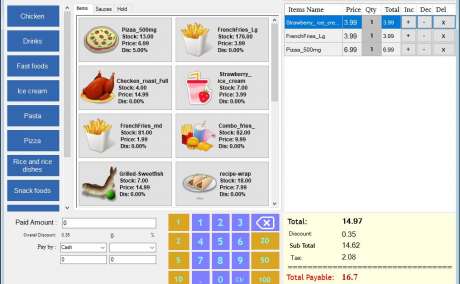
Description
If someone had to
My first attempt at Sudoku was pure chaos. I had no idea what I was doing. I thought it was about math (spoiler: it’s not) and filled random numbers just to make the grid look full. The result? A complete disaster. When I checked the answers, I realized I’d basically created a Sudoku version of modern art — no logic, just misplaced confidence.
But something about it hooked me. The quiet intensity of looking at the same grid for 20 minutes, trying to find that one missing number, felt oddly meditative. It wasn’t about speed or luck — it was about focus. Each correct placement felt like unlocking a secret code only my brain could understand.
Fast forward a few years, and Sudoku has become my go-to brain warm-up. Some people need caffeine to wake up — I need grids. There’s something deeply satisfying about sitting down with a cup of coffee and a fresh puzzle, feeling my sleepy brain start to fire up with every logical deduction.
And honestly, Sudoku has taught me patience in ways life never could. When I rush a move, the grid collapses on itself like a bad Jenga tower. When I slow down, take a breath, and actually think, the solution unfolds naturally. It’s like Sudoku is quietly whispering, “Hey, slow down — life’s not a race either.”
At one point, I thought I was becoming a Sudoku master. I’d solved dozens of “Hard” puzzles in a row, and my ego was practically glowing. Then came the “Evil” level — a puzzle so devious it could make a genius cry.
I spent two hours on it, convinced I was one move away from victory. I had scribbles, arrows, tiny notes in every box. I looked like a detective investigating a crime scene. And when I finally realized I’d made a mistake on line three, everything fell apart.
Did I feel defeated? Absolutely. Did I start another puzzle five minutes later? Also absolutely. Because the thing about Sudoku is that it’s quietly addictive — not because it’s flashy or exciting, but because it rewards persistence.
Playing Sudoku regularly has surprisingly changed how I think. It’s taught me to stay calm under pressure, to double-check my assumptions, and to appreciate the value of small victories. Sometimes, life feels like a messy Sudoku puzzle — everything’s confusing until one piece suddenly makes sense, and then the rest starts falling into place.
I’ve even started using Sudoku as a way to reset my brain. When I’m stuck on work or overthinking something, I’ll do a quick puzzle. It’s like a mental palate cleanser — numbers, logic, order — no emotions, no chaos. Just focus.
There are also moments when Sudoku turns into a comedy show. Like that time I was so confident about a “perfect run” that I bragged to my friend mid-game — only to realize I’d put two nines in the same row. Or when I solved a particularly hard puzzle and felt like I deserved an Olympic medal for brainpower.
Sometimes, I even name my Sudoku grids — “The Monster,” “The Deceiver,” “The One That Broke Me.” Each puzzle feels like its own little story, with twists, turns, and a dramatic ending when that final number clicks into place.
If you’re new to Sudoku, here are a few things I’ve learned along the way:
Start simple. Don’t jump into “Evil” mode right away unless you enjoy suffering.
Pencil marks are your best friend. They’re not a sign of weakness — they’re strategy.
Take breaks. When you hit a wall, walk away. The answer usually appears the moment you stop staring at it.
Enjoy the process. Sudoku isn’t about being perfect — it’s about training your mind to think clearly and calmly.
Sometimes, it’s not the solution that matters most — it’s the way your brain dances around the possibilities to get there.
Nothing compares to the feeling of placing the last number in a Sudoku puzzle. It’s quiet, subtle satisfaction — no applause, no fireworks, just a deep sense of “I did it.” It’s a reminder that patience and persistence always pay off, even in the smallest of things.
I think that’s what keeps me coming back to Sudoku again and again. It’s more than a game — it’s a mirror for how I handle challenges. Do I rush? Do I second-guess myself? Or can I stay calm, observe, and trust the process?
Each puzzle gives me a tiny glimpse into my own mindset. And on the days I finish one cleanly, I feel like I’ve not only solved a grid — I’ve sorted out a piece of my own chaos too.
So yeah, Sudoku might just be a bunch of numbers on a grid, but for me, it’s also a quiet daily ritual, a teacher of patience, and an endless source of both frustration and joy. Whether you play it on paper, on your phone, or in a random waiting room, it has a way of pulling you in — reminding you that every problem, no matter how tangled, has a solution waiting to be found.

Reviews
To write a review, you must login first.
From the Same Seller